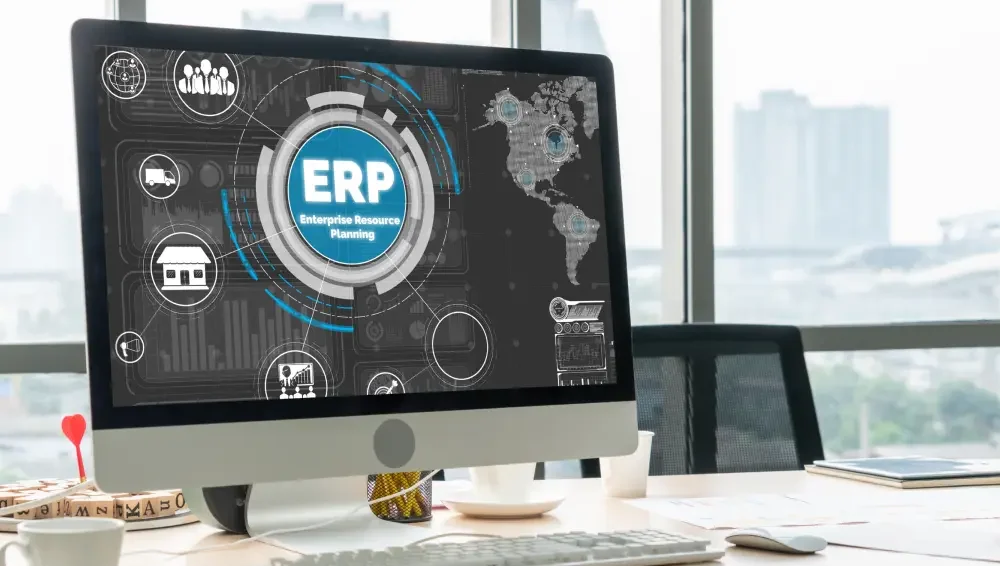Running a growing business often means managing a wide range of complex tasks across multiple departments. An Enterprise Resource Planning (ERP) system, like BizCore ERP, helps businesses simplify and automate these tasks, making operations more efficient and seamless. By integrating all core functions such as sales, finance, and inventory into one system, ERP allows businesses to operate more smoothly, reducing manual work and improving decision-making. Here’s how ERP transforms your business operations into a streamlined, efficient powerhouse.
1. Centralized Data for Easy Access and Collaboration
One of the greatest advantages of ERP is its ability to centralize data across different business functions. With all data stored in a single system, everyone from your sales team to your accountants can access the information they need in real-time.
How centralized data improves efficiency:
– Real-time updates: No more waiting for reports or manually updating information ERP systems provide real-time access to data, ensuring everyone is on the same page.
– Cross-department collaboration: Whether it’s coordinating between sales and inventory or finance and HR, ERP enables smooth collaboration by connecting all departments through one platform.
– Improved decision-making: Having all relevant data at your fingertips allows for more informed and faster decision-making, reducing delays and improving responsiveness.
With centralized data, ERP systems streamline communication and ensure that your teams can collaborate more effectively, reducing the need for manual data handling.

2. Automation of Repetitive Tasks
As businesses grow, repetitive tasks like invoicing, payroll, and order processing can take up a lot of valuable time. ERP automates these routine processes, freeing up your team to focus on higher-value work.
How ERP automates tasks for efficiency:
– Automated invoicing and payments: Say goodbye to manual invoicing. ERP systems can automatically generate invoices, track payments, and send reminders, ensuring you stay on top of cash flow.
– Inventory and supply chain management: With ERP, inventory levels are tracked in real-time, and automated alerts are sent when stock is low or orders need to be placed, reducing manual inventory checks.
– Payroll and HR automation: ERP simplifies payroll management by automatically calculating salaries, benefits, and tax deductions, ensuring timely and accurate payments to employees.
By automating these essential but repetitive tasks, ERP saves time, reduces errors, and boosts overall operational efficiency.
3. Improved Financial Management and Reporting
Financial management can be complex and time consuming, especially for growing businesses. ERP systems provide a comprehensive financial overview, automating key accounting tasks and generating detailed financial reports with ease.
How ERP improves financial management:
– Real-time financial reporting: Access up-to-date financial information at any time, allowing you to monitor cash flow, profit margins, and expenses without waiting for month-end reports.
– Automated compliance: ERP systems automatically generate reports that meet tax and regulatory requirements, reducing the risk of compliance issues.
– Cost control: ERP tracks expenses across departments, helping you identify areas where costs can be cut or optimized for better financial performance.
With its robust financial management tools, ERP ensures that your business remains financially sound while providing the insights needed to make strategic decisions.
4. Enhanced Customer Experience through Improved Service
Providing excellent customer service is crucial for business success, and ERP plays a significant role in enhancing the customer experience. By streamlining order processing, inventory management, and after-sales service, ERP ensures that customers receive fast, accurate, and personalized service.
How ERP improves customer satisfaction:
– Faster order fulfillment: With real-time inventory tracking, ERP ensures that orders are processed and fulfilled faster, reducing wait times for customers.
– Personalized service: Access to detailed customer data allows your sales and support teams to offer personalized interactions, tailored recommendations, and faster issue resolution.
– Seamless returns and support: ERP tracks after-sales service and warranties, ensuring that returns and support requests are handled efficiently and to the satisfaction of your customers.
By improving internal processes, ERP enables businesses to deliver a better customer experience, leading to higher satisfaction and loyalty.
5. Scalability to Support Business Growth
As your business expands, so do the demands on your systems and processes. ERP is designed to scale, providing businesses with the flexibility to add new modules, users, and functionalities as needed.
How ERP supports scalability:
– Modular design: ERP systems like BizCore ERP offer a range of modules that can be added or customized based on your business’s evolving needs, whether you’re adding new products, services, or locations.
– Flexible infrastructure: ERP grows with your business, supporting additional users, larger datasets, and increased transaction volumes without requiring a complete overhaul.
– Future proof your operations: By investing in ERP early on, businesses can ensure that they have the infrastructure in place to support future growth without disruptions.
With its scalable architecture, ERP provides businesses with the foundation they need to grow efficiently and sustainably.
Conclusion: Simplify Business Management with ERP
For growing businesses, managing operations across multiple departments and systems can be challenging. Enterprise Resource Planning (ERP) software, such as BizCore ERP, simplifies business management by centralizing data, automating tasks, and providing real-time insights into your operations. From improving customer service to streamlining financial management, ERP transforms your business into a well-oiled machine, capable of handling growth and complexity with ease. For any business looking to operate more efficiently and scale smoothly, ERP is the ultimate tool for success.
